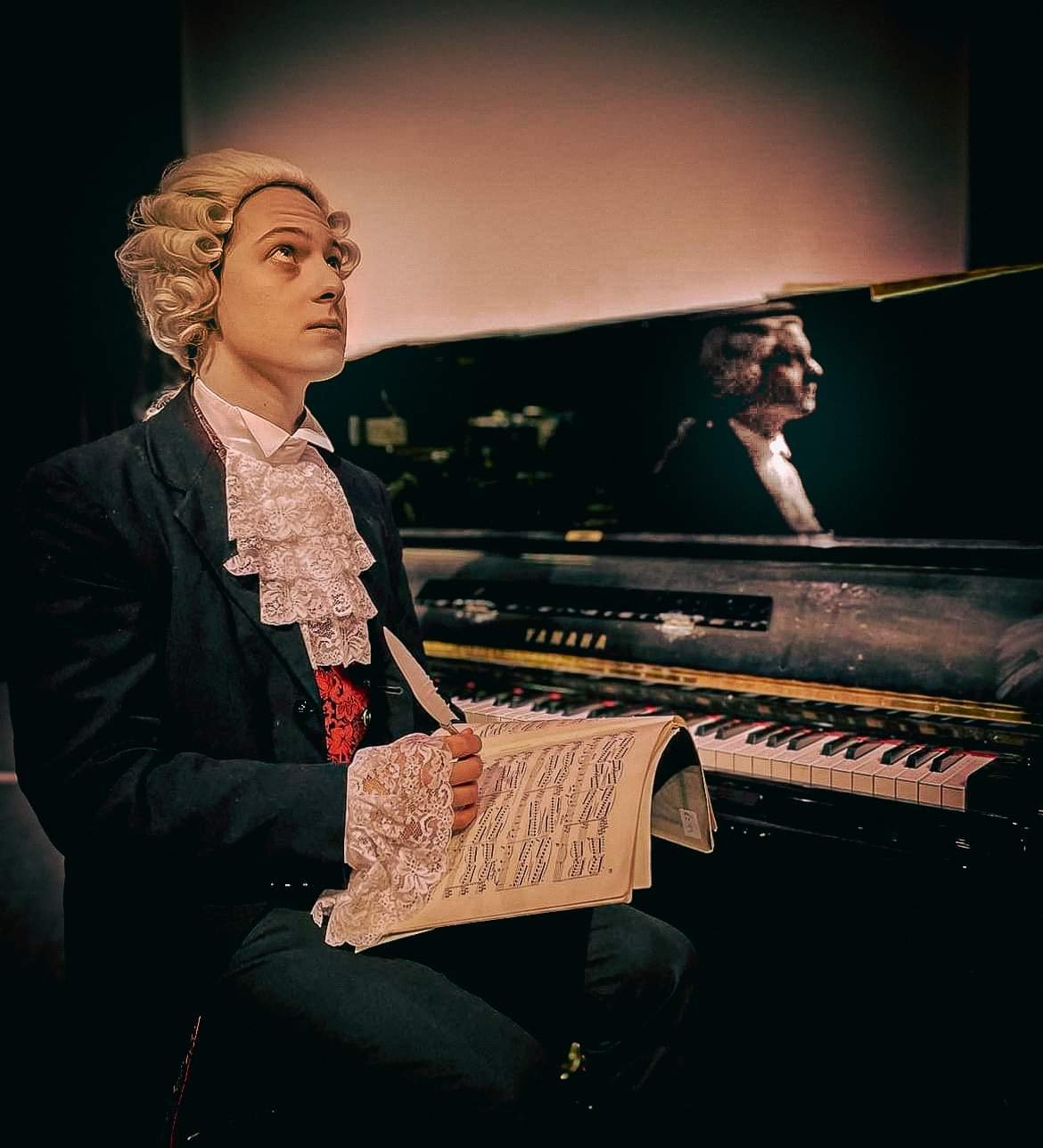Amadeus Review
By Victoria Modi-Celda
For a play considered to be narrating the vision of a musical genius, Charles Vivian’s play of Amadeus most definitely inherits the trait of genius in its direction. Initially, the prospect of a three-hour production did not leave me enthused, yet I found myself enchanted in every scene, hanging onto the words of each actor. Defying the binary expectations of a play, it evolved in a multi-faceted experience bringing to life the very notes written in Mozart’s score. Props were elevated into experiences. Movements drawing us into the world of 18th century Vienna. Fitting the bill as a tumultuous play, the audience was at the mercy of the director, vulnerable to feeling the wide scope of emotions delivered throughout the duration. The palpability of Mozart’s suffering and madness was entirely fathomable; the potency of Salieri’s jealousy seeming, at times, entirely justifiable to the audience. In a play meditating on the hardship of not being naturally gifted, the deliverance of Salieri’s performance appeared effortless. The admiration I had for the execution play didn’t simply arise from the high calibre of acting delivered but in the meticulously detailed, artistic creation of Schaffer’s 1979 play. The virtuosity in the technical side was enough to leave one in awe. The manipulation of lighting and sound elevated a play that was already undoubtedly extraordinary, to one worthy of the title of masterpiece. Within the realm of the Byre Theatre, the fantasia of Mozart and Salieri and the eccentricity of 18th century Vienna was indulged upon. The genius of the play and its direction is undeniably irrefutable.
ST.ART does not own the rights to any images used in this article.

